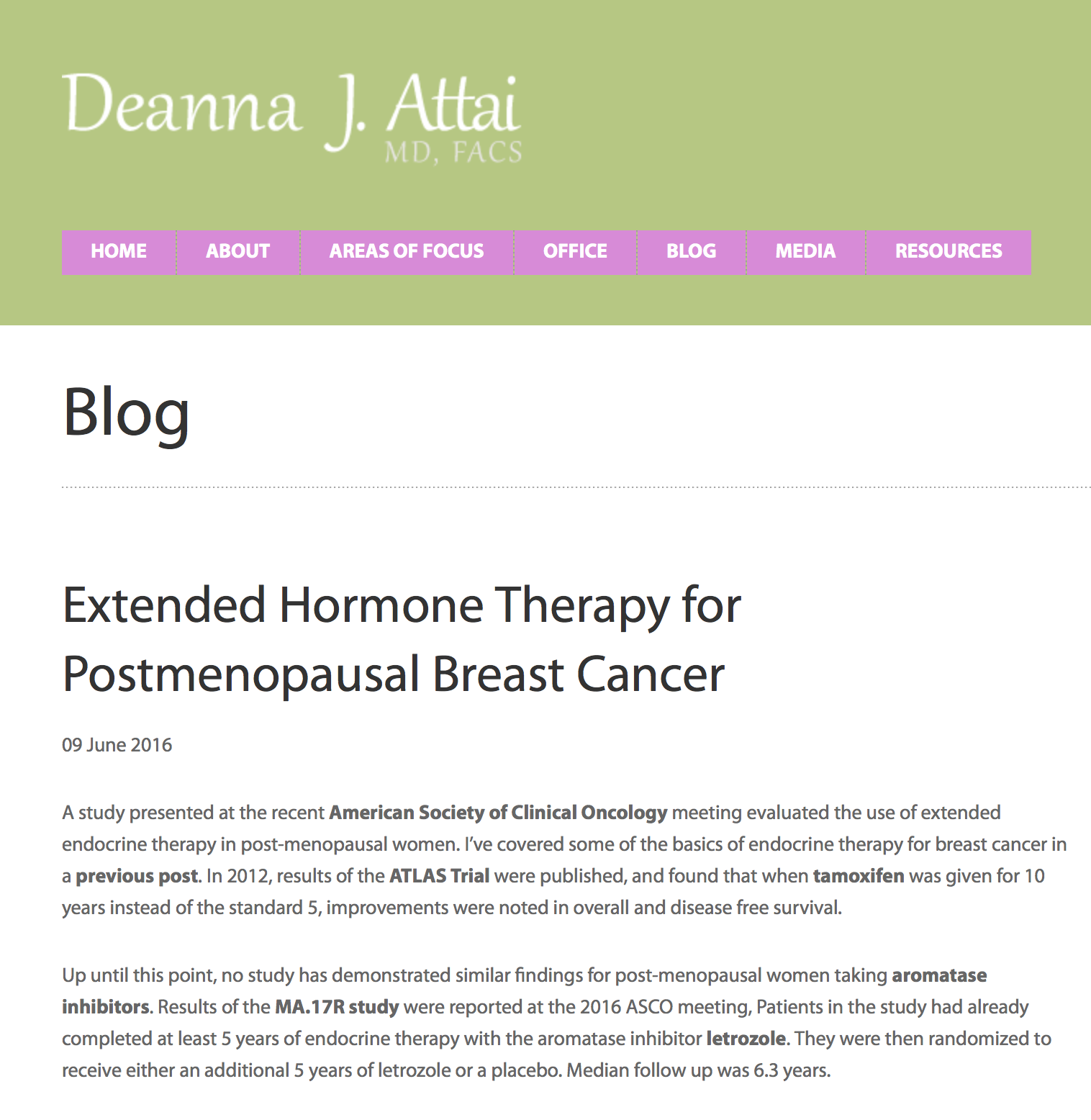
This summer, we finally received trial results about an important clinical question: does extended aromatase inhibitor (“hormonal”) treatment of breast cancer from 5 years to 10 years affect long-term outcomes in breast cancer survivors? Post-menopausal patients with estrogen or protesterone positive breast cancer were randomized to receive either 5 years or 10 years of aromatase inhibitor therapy (letrozole). This is a very relevant question because while a high percentage of patients with “hormone positive breast cancer” are cured with treatment, the risk of cancer recurrence extends to 15-20 years after initial diagnosis.
There was a statistically significant improvement in “disease free survival” at 5 yrs where 95% of patients with extended hormone therapy were cancer free compared with 91% of patients with 5 years of hormone therapy that were cancer-free.
There are side effects associated with extending hormone therapy. Importantly, a 5% increase in bone fractures was seen (osteoporosis is a known side effect of hormonal therapy). These bone fractures can be preventable with aggressive treatment of osteoporosis.
So in a small but important subgroup of women, there is improvement in surviving without cancer with a longer treatment of hormonal therapy. Hormonal therapy does come with long term issues, such as osteoporosis, hot flashes, sexual dysfunction. It is important that a detailed discussion between the doctor and each patient occurs to determine what makes sense individually with each patient. This blog by a breast surgeon, Dr. Attai, summarizes the findings of this study nicely.
















